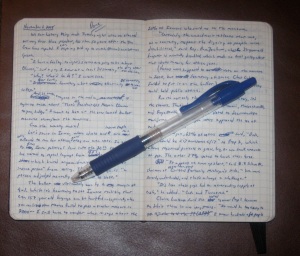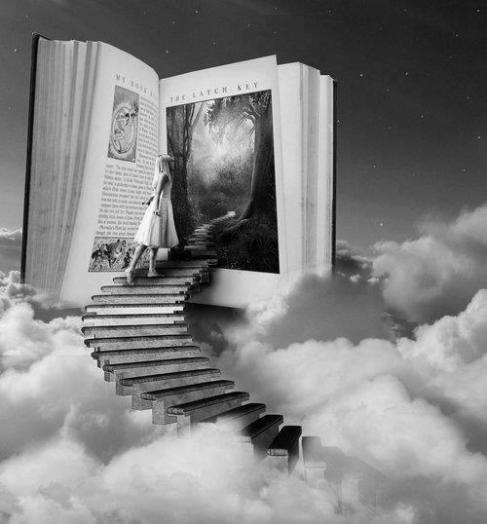How I learned to write…
We all have those moments when, in the middle of a fantastic read, you close the book, throw it on the table, then stare into space. Your mind then wanders and you begin wondering why this particular novelist was given the gift of effortless writing, on all counts, while you’re left tapping the pencil instead of the keys and staring at a blank page.
Fortunately, these thoughts are just that. A thought. I don’t know of a writer on this planet who hasn’t had to learn the craft with all the blood, sweat, and tears that are an inevitable part of the package. So how do you learn to write? How do you grow from clumsy to confident?
The following is simply a recount of what I have learned along the way. Some things may work for you, some things may not.
Firstly, I read. I read almost anything. I am an insatiable bookworm. By reading as much as I can and as wide a variety as possible, the good and the bad, I see a literacy landscape that is continually evolving in front of me. I read the classics. This can range from Shakespeare to Dickens and all those in between. So much knowledge can be gained from this; historical, cultural for example. Horizons are quickly broadened not only as a writer but also as a person.
I read my genre. If you write mysteries, read every whodunit you can get your hands on. Fantasy? Paw through all the Lord of the Rings books you can. If you like romance read romance. Learn what makes them work and what doesn’t. You will also learn quickly what has been done to death. Pay attention to it all. Then learn how to mimic their brilliance.
I read how to books. Before discovering how to books, I think I had written entirely on the instinct gained from the osmosis of my bookworm habits. After this, I realized there was actually a process to writing stories. Suddenly, I went from winging it to working my way toward an understanding of the craft.
I listened to the critics. Not my own inner critic, but that of others. From the very beginning, when I wrote a few pages as little chapter books around twelve years of age then giving them to the school librarian to shelve, I always listened to her criticism then the criticism of others as I grew older. Feedback from unbiased readers is crucial to understanding the effect our writing has upon other people. Feedback from experienced writers is crucial in learning how to improve so we can achieve that desired effect.
I took a writing course, or two, or three… and I still take on writing courses. Short courses, long courses, free ones and paid for ones. Apart from learning about characters and plots and structures, I am constantly granted confidence to go forth.
I subscribed to magazines. Australian and abroad. Round about the time I discovered writing how-to books, I also discovered writing magazines. There are many out there, just do a Google search and see what comes up. Most are online these days although I have to admit I still much prefer the hard copy arriving in the post. Magazines offer you worlds of information about writers groups, festivals, publishers, agents and so on.
Every writer writes differently. You just need to work out what works for you. Thanks to the combination above, I was able to figure out and streamline my own writing processes. I didn’t just listen to my own intuition, I paid attention to it. This process is still evolving with each different work I create, but it is there along with a daily schedule that lets me warm up and keeps me from procrastinating.
I make writing a priority. This is probably the most important statement I’m going to make here. Each day writing is a priority. Whether I jot down notes whilst on the bus. Whether I make mental notes of a conversation at a coffee shop or take a picture of something interesting, these are all a part of a daily process of me as a writer. I made writing a priority early on, probably right back in the day when I was twelve, and I’ve stuck with it ever since.
So, that’s it! This is what has worked for me thus far. It isn’t an exclusive list and it may not work for you, but it is my journey so far. Where the road turns next, I have no idea. Perhaps along a windy, unkempt path, but that surely is the fun of it!
“Let the world burn through you. Throw the prism light, white hot, on paper.”
—Ray Bradbury, WD









